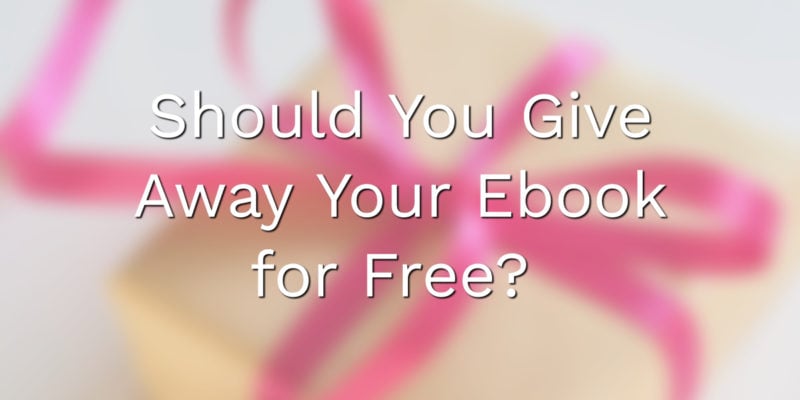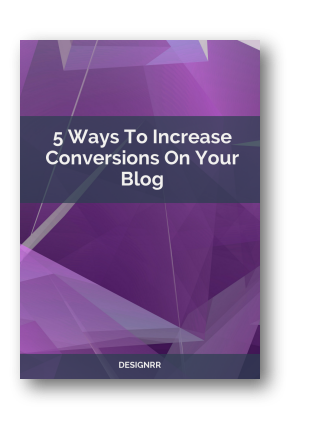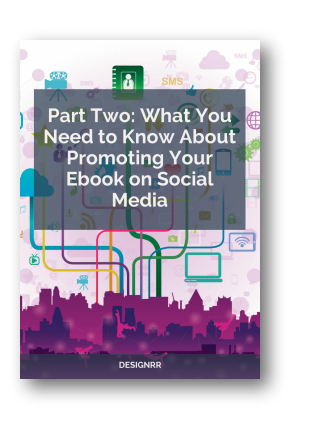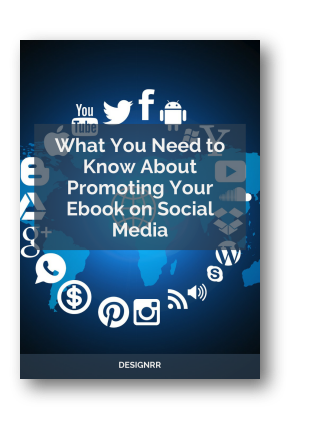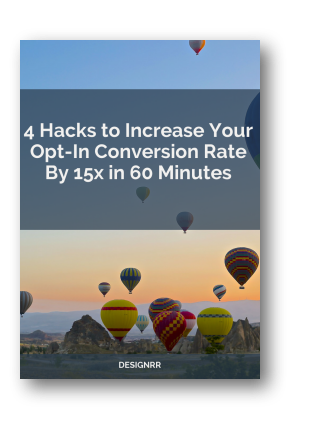So, you’ve poured your heart and soul into crafting an amazing ebook – congrats! Now comes the big question: should you slap a price tag on it or let it fly free?
It might feel a little crazy to give away something you’ve worked so hard on, right? But hear us out. Giving away your ebook for free can actually be a game-changer, especially for authors looking to build a loyal fanbase and businesses hungry for leads.
But hold your horses, it’s not all rainbows and unicorns. There are definitely some downsides to consider too.
In this article, we’re going to break it all down for you. We’ll weigh the pros and cons, share some real-world examples, and help you figure out whether giving away your ebook is the right move for you.
Whether you’re a seasoned author or a business owner just dipping your toes into the ebook waters, this guide will give you the insights you need to make a smart decision.
Ready to dive in? Let’s explore the potential perks of unleashing your ebook into the wild!
The Perks of Setting Your Ebook Free

Giving away your ebook might seem like you’re missing out on potential profits, but it can open up a world of opportunities:
-
Skyrocket Your Visibility: Think of your free ebook as a friendly ambassador for your brand. It’s like a digital business card that can be shared far and wide, reaching a much larger audience than a paid one. The more people who download and enjoy your ebook, the more buzz you create around your name and your work.
-
Build Your Email Empire: Who doesn’t love free stuff? By offering your ebook in exchange for an email address, you’re not just giving away valuable content, you’re building a treasure trove of potential customers. This email list is your golden ticket to nurturing leads, promoting future products, and staying connected with your audience.
-
Become the Expert: Sharing your knowledge for free is a surefire way to position yourself as an authority in your field. When people see that you’re willing to give away valuable information without asking for anything in return, they’ll start to trust you and see you as the go-to expert.
-
Open the Door to Paid Opportunities: A free ebook is like a delicious appetizer that leaves your readers wanting more. Once they’ve devoured your freebie and fallen in love with your writing or expertise, they’ll be eager to see what else you have to offer. This could mean buying your other books, signing up for your courses, or investing in your products or services.
-
Get Feedback Straight from the Source: When you give away your ebook, you’re essentially conducting a massive market research study. You’ll get valuable feedback from readers on what they loved, what they didn’t, and what they’re hungry for more of. This feedback can help you refine your future works and create products that truly resonate with your audience.
-
Generate Social Proof: Positive reviews and testimonials for your free ebook can act as powerful social proof, influencing potential customers to try your other products or services.
-
Create a Sense of Reciprocity: People tend to feel a sense of obligation to reciprocate when they receive something for free. This could lead them to support you in other ways, such as sharing your work, recommending you to others, or even purchasing your paid offerings.
-
Boost Your SEO: Offering a free ebook can increase traffic to your website, which can improve your search engine rankings and make it easier for potential customers to find you.
-
Test the Waters: If you’re new to creating ebooks or unsure about your target audience, offering a free ebook can be a low-risk way to test the waters and see what resonates with readers.
The Flip Side: When Free Might Not Be the Answer
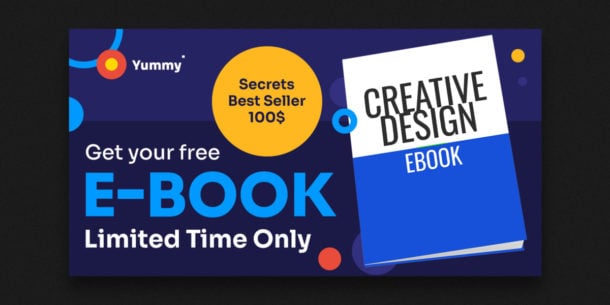
While giving away your ebook has its allure, it’s important to be aware of the potential pitfalls:
-
The Perception of Value: Let’s face it, we’ve all been conditioned to think “you get what you pay for.” If your ebook is free, some people might automatically assume it’s not as valuable or high-quality, if you actually sold your ebook. This can make it trickier to convince them to invest in your other offerings down the line.
-
Attracting the Wrong Crowd: Freebies can be like magnets for “freebie seekers” – folks who are more interested in hoarding free content than in actually engaging with your brand. While a high download count might look impressive, it might not translate to meaningful leads or loyal customers.
-
Missed Revenue Opportunities: If your ebook is packed with valuable insights and solves a real problem for your target audience, giving it away for free means you’re leaving potential profits on the table. This could mean less money to invest back into your business, create new products, or market your existing offerings.
-
Undermining Your Paid Products: If you have other paid products or services, especially ones related to your ebook’s topic, giving away your ebook could inadvertently sabotage your sales. Why would someone pay for something when they can get similar information for free?
-
Limited Data Collection: While you can still collect email addresses in exchange for your ebook, you might not gather as much valuable information about your audience as you would with a paid product. Paid downloads often come with more comprehensive data collection, giving you deeper insights into your customers’ preferences and behaviors.
-
The Risk of Overexposure: In the vast ocean of free content, your ebook might get lost in the shuffle. If it doesn’t stand out and grab attention, it might not make the impact you were hoping for.
-
Devaluing Your Expertise: If you consistently give away your knowledge for free, people might start to undervalue your expertise. This can make it harder to charge a premium price for your services in the future.
-
The “Freebie Trap”: Once you start giving away your ebooks for free, it can be hard to break the cycle. Your audience might come to expect free content from you, making it challenging to transition to a paid model later on.
This table provides a more targeted approach for each audience type, taking into account their specific goals and the types of ebook content that would best serve them. It also offers suggestions on how to leverage the free ebook to achieve the desired results.
| Audience Type | Goal | Ebook Content | Ideal Strategy |
| New Authors/Creators | Build audience, gain visibility, establish credibility | Introductory guide, tips, or a short story/novella |
Free ebook as a lead magnet or limited-time offer. Promote through social media and author platforms.
|
| Established Authors/Creators | Promote other works, experiment with marketing strategies | Sample chapters, behind-the-scenes content, or exclusive short stories |
Free ebook as a bonus for newsletter sign-ups or reader community members.
|
| Business Owners/Entrepreneurs | Generate leads, attract clients, build authority | Industry insights, how-to guides, case studies, or white papers |
Free ebook as a lead magnet. Promote through website, blog, social media, and industry publications.
|
| Experts/Educators | Showcase expertise, generate interest in courses/services | Educational guides, in-depth analysis, research summaries, or sample lessons |
Free ebook to establish authority. Promote through website, blog, social media, and professional networks.
|
| SaaS Companies | Educate users, attract potential customers | User manuals, tutorials, best practices, or industry reports |
Free ebook to educate potential customers. Promote through website, blog, social media, and forums.
|
| Non-profit Organizations | Raise awareness, attract donors/volunteers | Impact reports, stories, educational guides, or calls to action |
Free ebook to educate and inspire. Promote through website, social media, and email campaigns.
|
Free Ebooks Hypothetical Examples
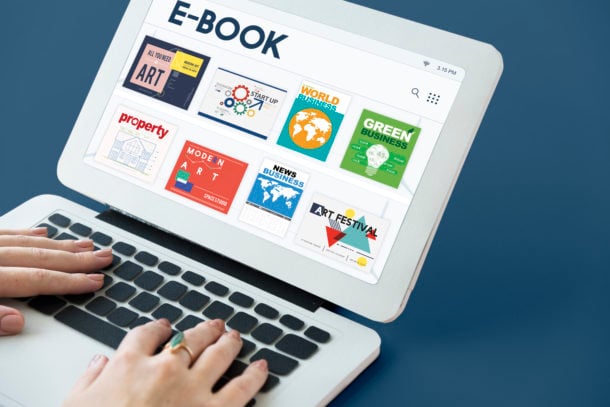
Let’s delve into how some savvy creators and businesses have harnessed the power of free ebooks to unlock remarkable growth:
Example 1: The New Author’s Breakthrough:
Amanda, an aspiring fantasy writer, was struggling to gain traction with her debut novel. She decided to offer the ebook for free for a limited time on various platforms. The result? A surge in downloads, glowing reviews, and a flood of social media buzz that caught the eye of a literary agent. Amanda’s free ebook not only boosted her visibility but also landed her a publishing deal for her next book.
Example 2: The SaaS Company’s Lead Magnet:
Productivity Pro, a software-as-a-service company, created an in-depth ebook guide packed with tips and tricks on how to maximize productivity using their platform. By offering this valuable resource for free on their website, they attracted thousands of new leads, many of whom converted into paying customers. The ebook became a powerful lead generation tool, fueling the company’s growth.
Example 3: The Consultant’s Authority Builder:
David, a financial consultant, wanted to establish himself as an expert in retirement planning. He wrote a comprehensive ebook on the topic and offered it for free on his website and LinkedIn profile. The ebook quickly became a go-to resource for individuals seeking retirement advice, boosting David’s credibility and attracting high-profile clients.
Example 4: The Marketing Agency’s Trust Builder:
A boutique marketing agency, seeking to attract new clients, created a series of free ebooks on various marketing strategies. Each ebook showcased the agency’s expertise and offered actionable tips for businesses. This generous approach built trust and positioned the agency as a valuable resource, leading to an influx of new client inquiries.
Example 5: The Non-Profit’s Awareness Campaign:
A non-profit organization focused on environmental conservation published a free ebook highlighting the impact of climate change. The ebook was widely shared on social media, generating awareness about the organization’s mission and attracting new donors and volunteers.
Example 6: Designrr’s Free Ebook Offer:
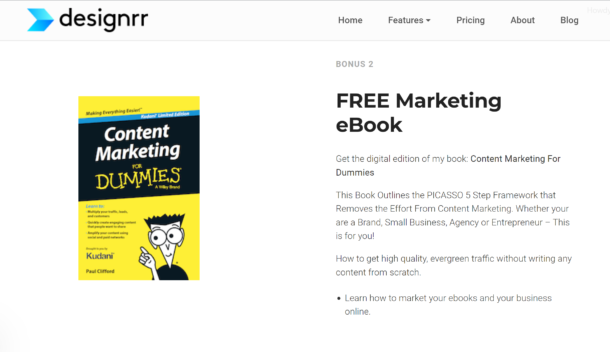
Designrr, an ebook creator platform that helps users create stunning ebooks, offers a free ebook to those who subscribe to their service. This strategy not only demonstrates the quality of ebooks that can be created with their platform but also serves as a valuable resource for potential customers.
These examples showcase the diverse ways in which free ebooks can be leveraged to achieve a variety of goals, from building brand awareness and generating leads to establishing authority and driving social impact.
Making the Right Call: Is Free the Way to Go?
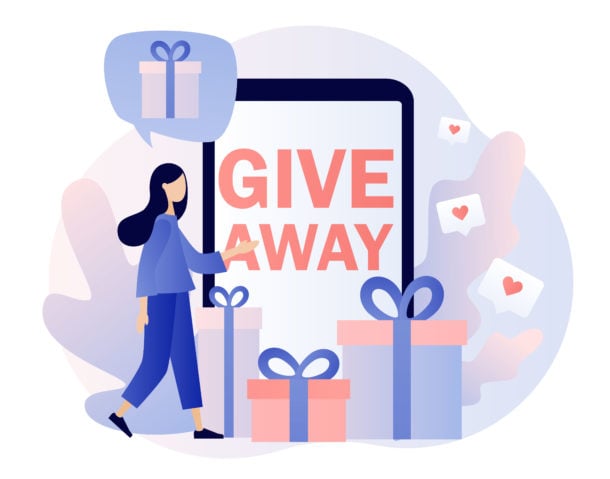
Choosing whether to give away your ebook or charge for it isn’t a one-size-fits-all scenario. The best path depends on several key factors:
Understanding Your Goals
Before diving into the free vs. paid debate, it’s crucial to get crystal clear on what you hope to achieve with your ebook. Your goals will significantly influence your pricing strategy.
- Building Brand Awareness and Credibility: If you’re a new author or business, a free ebook can be a fantastic way to introduce yourself to the world. It allows you to showcase your expertise, build trust, and get your name out there.
- Generating Leads: Do you want to build an email list of potential customers or clients? Offering your ebook as a lead magnet in exchange for contact information can be a highly effective way to do so.
- Promoting Other Products or Services: Is your ebook designed to be a stepping stone to your paid offerings? If so, giving it away for free can entice readers to explore your other products or services.
- Driving Traffic to Your Website or Platform: A free ebook can be a powerful traffic driver. By offering it on your website or social media channels, you can attract new visitors and potential customers.
- Gaining Feedback and Testimonials: Offering your ebook for free can generate valuable feedback and reviews from readers. This can help you improve your future work and build social proof.
- Establishing Authority: Offering a comprehensive, well-researched ebook for free can position you as a thought leader in your field, increasing your credibility and influence.
- Building a Community: Free ebooks can spark conversations and engagement, fostering a sense of community around your brand or topic.
Knowing Your Audience
Understanding your target audience is essential for making the right pricing decision. Consider the following:
- Interests and Preferences: What topics are your audience most interested in? What kind of content do they find valuable? Tailoring your ebook to their specific interests will increase its appeal.
- Financial Resources: Is your audience primarily made up of students, budget-conscious individuals, or professionals willing to invest in valuable resources? This will influence their willingness to pay for your ebook.
- Level of Expertise: Are you targeting beginners who are looking for introductory information or experienced professionals seeking advanced insights? This will help you determine the appropriate depth and complexity of your ebook’s content.
- Preferred Format: Does your audience prefer reading ebooks on their Kindle, tablet, or computer? Offering your ebook in multiple formats can ensure a wider reach.
- Pain Points and Challenges: What problems or challenges is your audience facing? If your ebook addresses these pain points directly, they may be more willing to pay for it.
Evaluating Your Ebook
Take a critical look at your ebook itself to assess its value proposition and potential for generating revenue:
- Content Quality: Is your ebook well-written, engaging, and informative? Does it offer unique insights or solutions that your audience can’t find elsewhere? A high-quality ebook is more likely to command a premium price.
- Production Costs: Consider the time, effort, and resources you invested in creating your ebook. If you spent significant time researching, writing, and editing, charging for it can help you recoup your investment.
- Market Demand: Is there a strong demand for the topic you’ve covered in your ebook? If so, you might be able to charge a higher price.
- Competitive Landscape: Are there other ebooks on similar topics available for free or at a low cost? If so, you’ll need to differentiate your ebook to stand out from the competition.
- Length and Depth: A longer, more in-depth ebook might justify a higher price point than a shorter, introductory guide.
The Final Verdict
Both paths offer unique advantages and challenges, and the best choice for you will depend on your specific goals, target audience, and the overall context of your business.
If you’re looking to build brand awareness, generate leads, or promote other products or services, giving away your ebook can be a powerful strategy. But if your primary goal is to generate revenue or establish your ebook as a premium product, charging for it might be the way to go.
Remember, there’s no shame in experimenting with different approaches. You can start by offering your ebook for free to gain initial traction and build an audience, then transition to a paid model later on. Or, you can test out a hybrid approach like freemium or limited-time promotions to see what resonates best with your audience.
Ultimately, the most important thing is to make a conscious, informed decision based on your individual needs and objectives. By carefully weighing the pros and cons and understanding the factors that influence your ebook’s success, you can choose the path that leads to the most fulfilling and profitable outcome.
So, what will your ebook’s destiny be?
I hope this comprehensive guide has equipped you with the knowledge and insights you need to make the best decision for your ebook.
